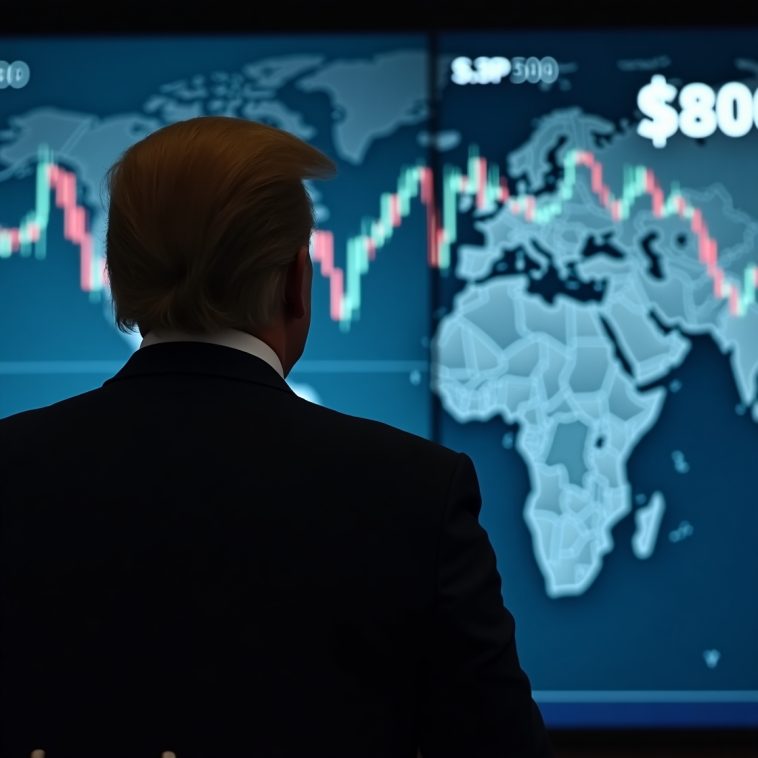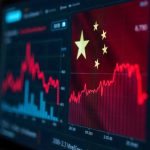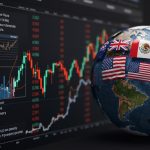The recent imposition of tariffs by President Trump on Mexico and Canada has sent shockwaves through the stock market, erasing the post-election gains in a single day. This dramatic shift reflects Wall Street’s judgment on Trump’s economic decisions, marked by uncertainty and volatility.
1. Stock Market Reaction to Tariffs
The S&P 500 experienced a rollercoaster ride, briefly entering positive territory before closing down 1.2%. The Nasdaq Composite Index edged closer to correction territory as investors accelerated their sell-off amid retaliatory tariffs from Canada, Mexico, and China. Canada imposed 25% duties on billions of dollars of U.S. imports, while Mexico and China also retaliated with significant tariffs. This escalation in trade tensions has heightened concerns among investors regarding the potential repercussions on the economy, leading to a depreciation of the dollar as traders sought refuge in safe-haven Treasuries.
2. Economic Warfare and Global Trade
Prime Minister Justin Trudeau framed Trump’s move as a declaration of economic warfare, highlighting the escalating tensions in global trade. The tariffs have not only affected the stock market but also raised concerns about long-term economic challenges, including the alienation of U.S. allies and potential complications in collective action against China. Historically, extensive use of tariffs has been associated with anti-free trade sentiments, which could lead to diminished productivity and a new norm of economic irrationality.
3. Short-Term Pain for Long-Term Gain?
The White House views these tariffs as part of a broader economic strategy, suggesting that short-term pain might lead to long-term advantages. However, business leaders and economists are cautious, noting that these measures could complicate future economic policies and isolate the U.S. globally. The theory that Wall Street’s performance could restrain Trump’s more radical proposals has been challenged by recent events, as the president seems undeterred by the stock market’s decline45.
4. Domestic Referendum on Economic Policy
The stock market’s reaction can be seen as a domestic referendum on Trump’s economic agenda. While the stock market is not the economy, significant declines could translate into tangible consumer pain, potentially influencing public perception and policy responses. The S&P 500 has lost all its gains since Trump’s re-election, and the Dow Jones Industrial Average has plummeted by nearly 2,000 points since its peak in early December.
5. Global Market Impact
The global markets faced widespread declines in response to Trump’s tariff announcement. Europe’s STOXX Europe 600 index decreased by 2.14%, while Germany’s DAX index dropped 3%. In Japan, the Nikkei 225 index fell by 1.2%, and Hong Kong’s Hang Seng index declined by 0.28%. These declines reflect the far-reaching impact of U.S. trade policies on international markets.
6. Economic Indicators and Future Outlook
Recent economic indicators, including a disappointing manufacturing report, have contributed to the decline in stocks. The February ISM Index fell below expectations, with new orders entering contraction territory. This, combined with rising price pressures, has unsettled investors and raised concerns about a potential slowdown in the U.S. economy.
Conclusion: Navigating the Stock Market Amid Tariffs and Economic Uncertainty
The current stock market environment is marked by uncertainty due to tariffs and significant economic announcements. Investors must closely monitor these developments to navigate the evolving landscape effectively. The long-term implications of Trump’s economic policies remain to be seen, but the immediate impact on the stock market is clear: increased volatility and a loss of confidence in the administration’s ability to manage global trade relations.



